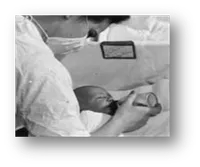Motherhood in Britain, c. 1945-2000
Looking through the prism of motherhood provides a way of understanding the complex social changes that have taken place in the post-war world. Motherhood is an area where a number of discourses and practices meet, such as education, health care, psychology, labour market trends and state intervention. The experience of motherhood has a wide resonance, demonstrating change in women’s lives, gender relations, culture and society, family and community patterns, health and welfare, and the relationship between the family and the state. Drawing on the themes of continuity and change my research examines the legacies of these developments and will consider what they indicate about both the past and future of motherhood in England. The research is based on c. 150 oral history interviews. The use of oral history enables us to rethink our understanding of women’s lives. Oral history reveals the subtleties in the experience of motherhood and the diversity of responses, which can challenge existing assumptions and traditional historical accounts. Reflecting the ways in which the oral history interviews conducted for the project can offer both objective and subjective information, my aim is to uncover the multifaceted experience of motherhood.
This research originates from two principal projects. As a Leverhulme Early Career Fellow I undertook a research project looking at attitudes and experiences of motherhood in Britain between 1970 and 1990 entitled 'Motherhood, c. 1970-1990: An Oral History'. Women’s lives were transformed during the period 1970-1990. Less than a third of married women were in paid employment in 1961; in 1991 it was over half. Women had fewer children, were less likely to marry and increasingly cohabited. Based on seventy oral history interviews with Oxfordshire women the project questioned how this new social climate challenged existing understandings of motherhood and what women felt about its consequences. This Leverhulme funded research extended my prior doctoral thesis which was entitled ‘Motherhood in Oxfordshire, c. 1945-1970: A Study of Attitudes, Experiences and Ideals’. Based on ninety-two oral history interviews with Oxfordshire women it identified the difficulties mothers faced during the period 1945-1970 and the ways in which women organised themselves to improve their lives. It also revealed that women thought significant changes took place in the lives of mothers after 1970, which inspired me to undertake the follow-up study.
 |
Events
|
 |
Publications (Selected)
|
|
|
Conferences / Seminar Papers (Selected)
|


